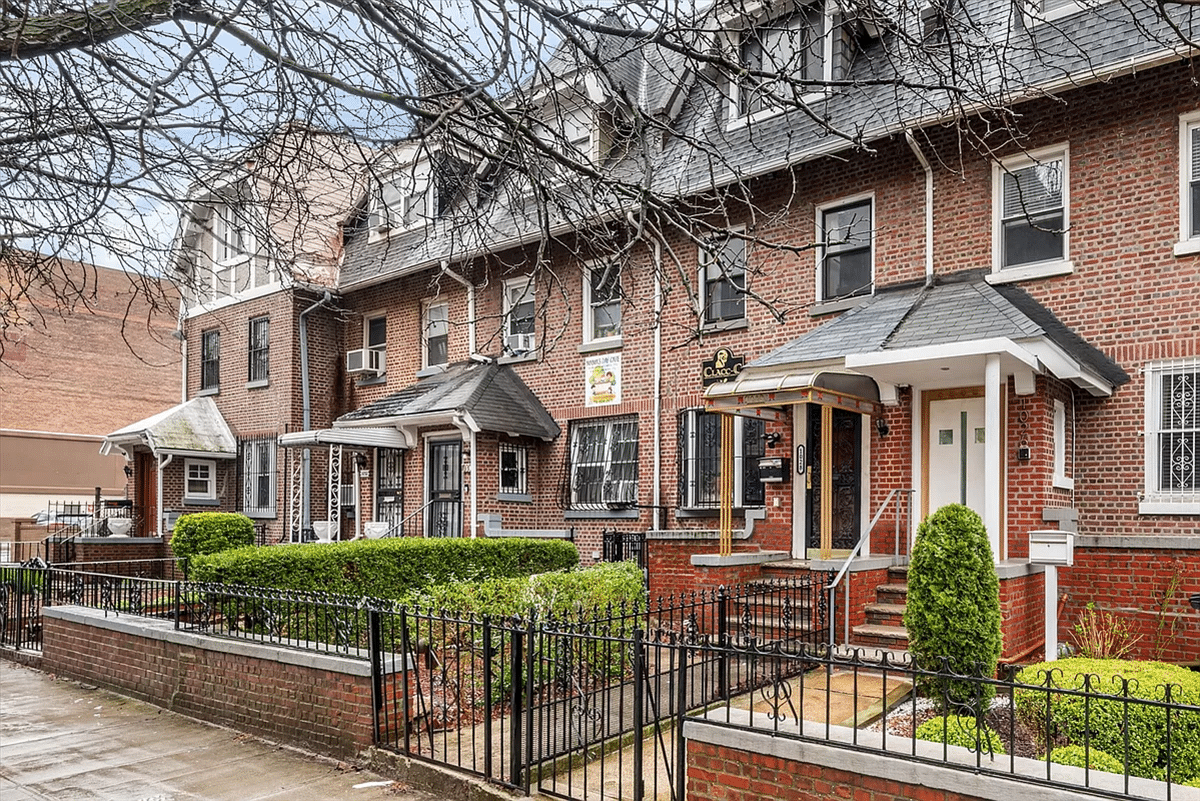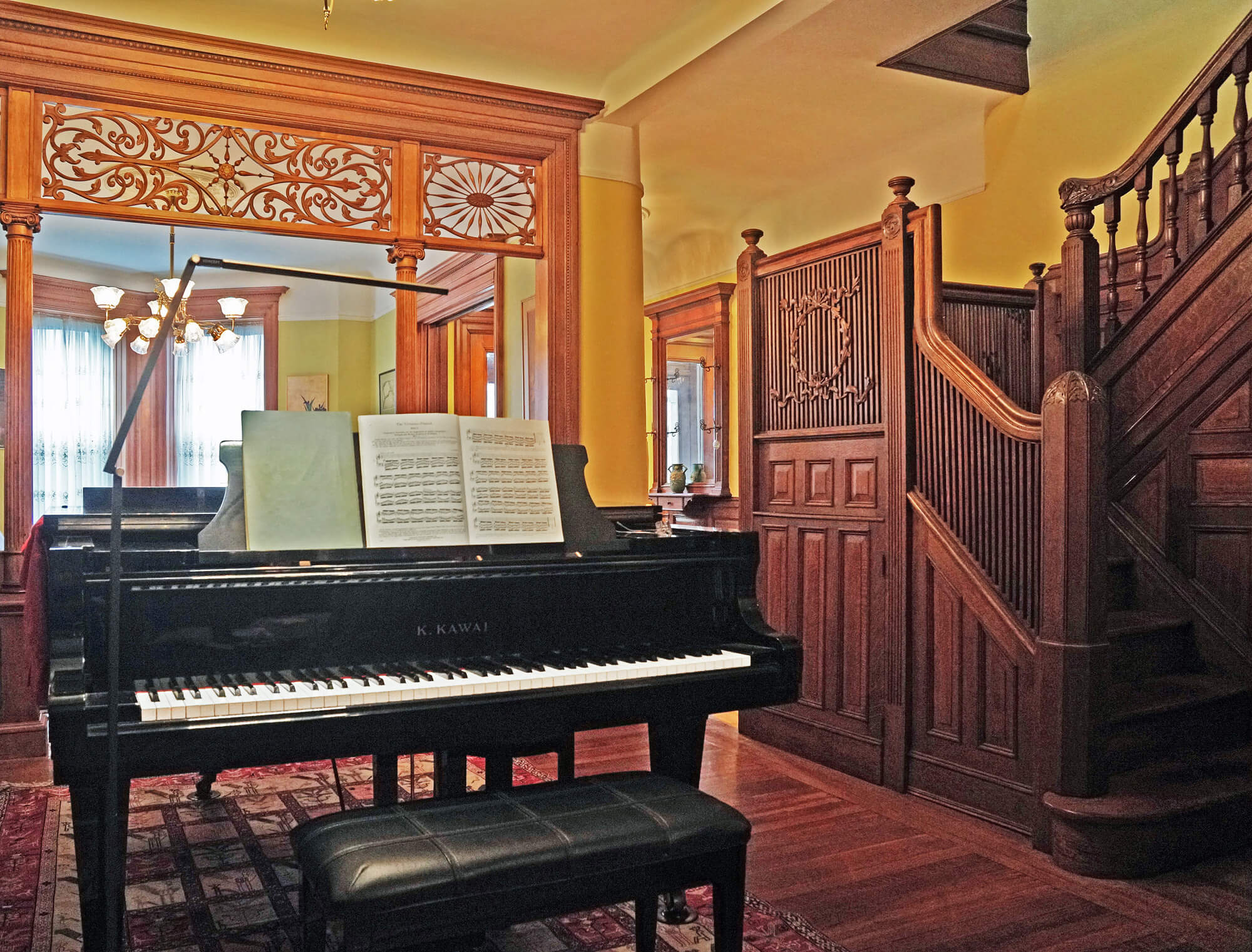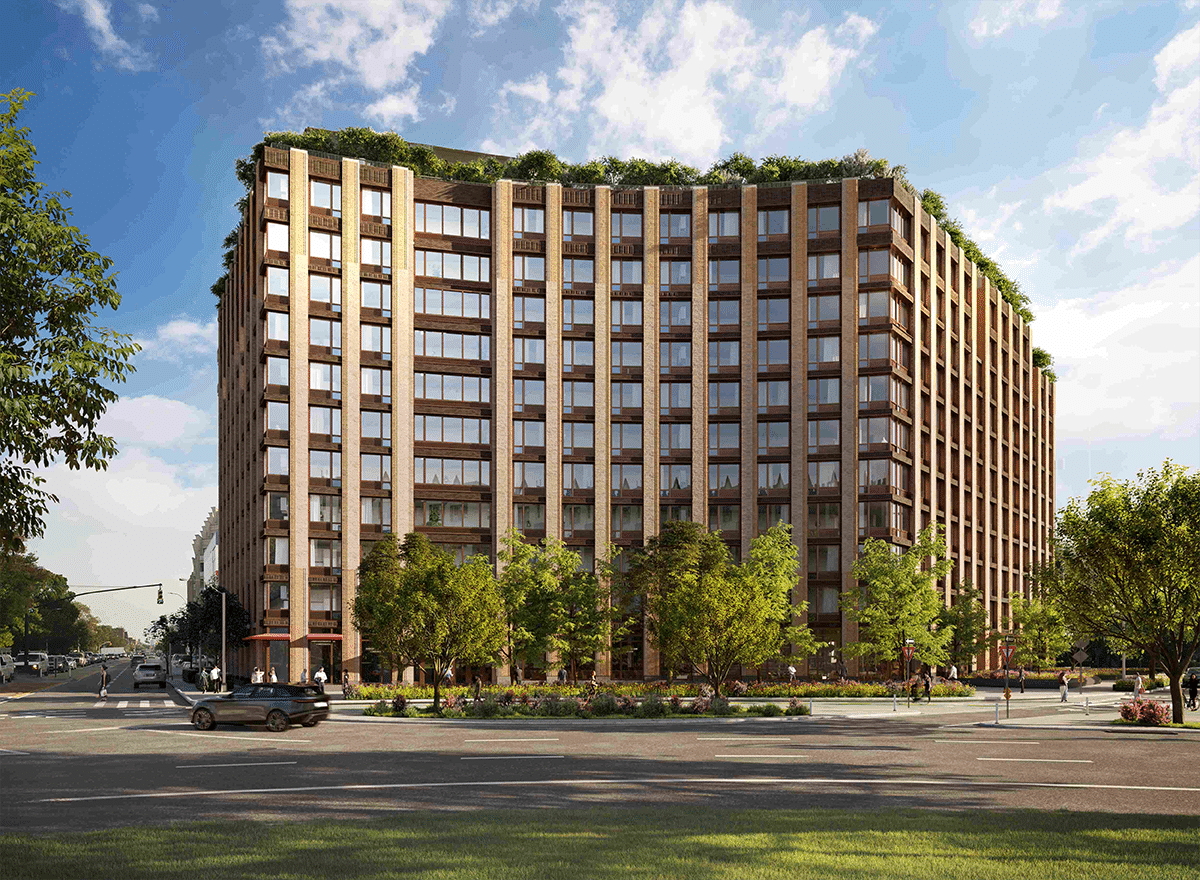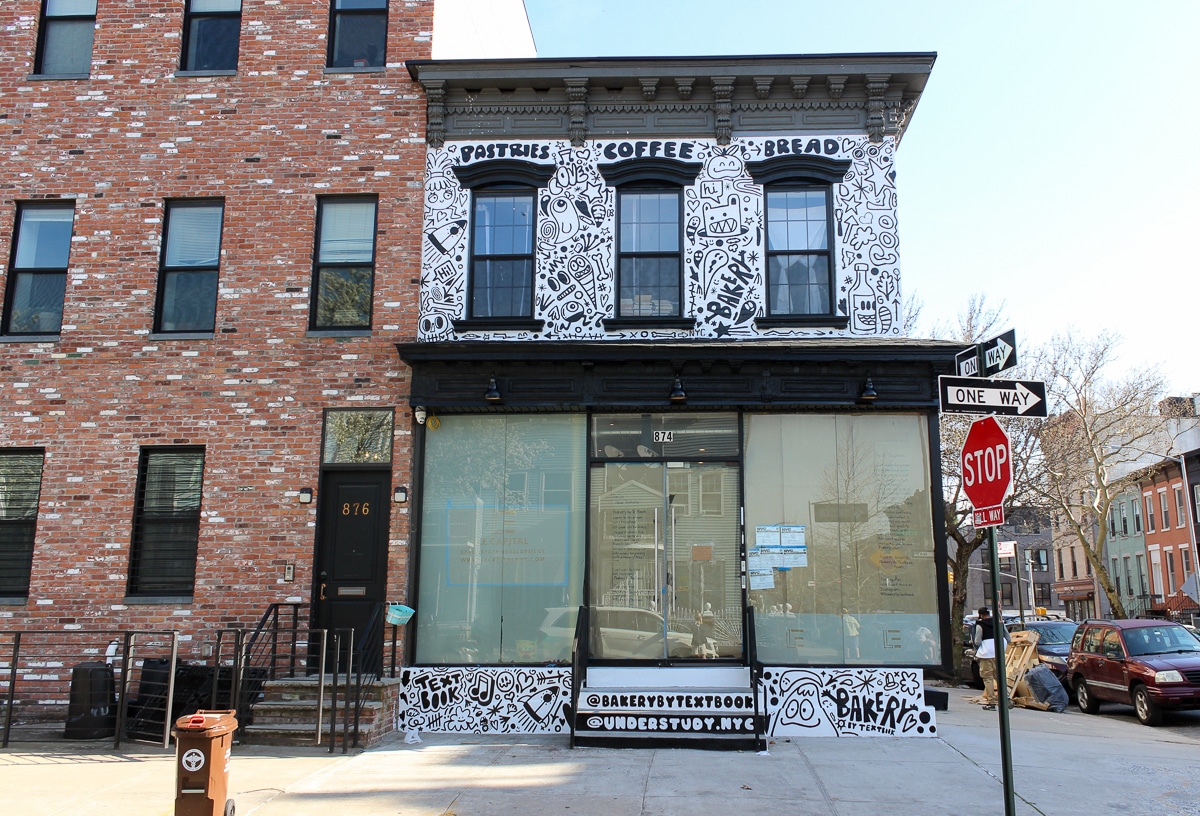All Cash Investors Beating Buyers of Townhouses in Brooklyn
Investors are buying houses in Brooklyn to rent out — not flip — and doing the deals in cash, further adding to the lack of inventory and raising prices for would-be buyers who are looking for a place to live. “They come to all the open houses, they see every property,” a tipster told us….

Investors are buying houses in Brooklyn to rent out — not flip — and doing the deals in cash, further adding to the lack of inventory and raising prices for would-be buyers who are looking for a place to live. “They come to all the open houses, they see every property,” a tipster told us.
They are most active in Bed Stuy but are also purchasing in other emerging neighborhoods such as Crown Heights and Bushwick, as well as Clinton Hill, with occasional forays into more expensive areas such as Fort Greene and Carroll Gardens. They usually put in low-ball offers but not always. Some of their purchases “make no sense,” she said, citing SROs without certificates of non-harassment and properties with stop work orders on them.
They go after everything: foreclosures, houses that would normally sit on the market such as SROs and wrecks, and regular properties that qualify for a mortgage. They are focusing on one- to three-families, the same types of houses would-be homeowners are looking to purchase to occupy — not groups of houses or large apartment buildings, although occasionally they pick up single-family houses that have been subdivided into more than four units. She has encountered five firms, she said, each of which buys five to 10 houses a month with all cash.
“Everyone’s talking about there not being any inventory,” she said. “There’s plenty of inventory, it’s just not being offered any more,” she said, meaning investors are buying houses before they go on the market. “There’s so much money around. A lot is getting bought out quickly. They’re not end users.”
A Brownstoner reader who has been looking for properties in Bed Stuy, Crown Heights and Bushwick said he has been frustrated by losing to investors. “It seems that I’m being outbid left and right by investors who are coming to the table with cash in hand as soon as (or before) the house lists.” He has been “looking aggressively” for the past two months and his price range is $500,000 to $550,000.
We spoke to six real estate agents, four of whom said they had encountered investor groups buying houses to rent out. Some of the firms are European and Israeli, they said. One broker had high praise for one of the private European investment groups he had encountered, a boutique firm with local buyers that focused on buying high end properties with historic detail to rent. He also said that in the first quarter, the bulk of all-cash buyers he dealt with were families, not investors.
One such outfit, operating under the name Newtown Jets, has purchased 24 properties in Brooklyn since March, including 12 in May, according to PropertyShark. The transactions were all over the map geographically and pricewise, from Park Slope ($2,675,000) and Carroll Gardens ($1,699,000) to Bushwick ($662,500 and $599,000).
Interestingly, this group purchased 605 Decatur Street, a wreck with lots of historic detail whose owner was reportedly seeking an all-cash deal at the then-seemingly high price of $649,000. (It was a Brownstoner House of the Day in February.) Newtown Jets bought it in May for $678,000, or $29,000 over the initial ask.
Newtown Jets shares a Jersey City address with NJ Cash for Homes and its owner Dixon Leasing, a subsidiary of Dixon Advisory. Australian firm Dixon Advisory “has over 4,000 clients with funds under management in excess of $4 billion” and manages the US Masters Residential Property Fund, “the first Australian listed property trust with a primary strategy of investing in residential property in Hudson County, N.J.,” according to the fund’s website. Dixon Leasing is a property management company that has recently expanded into Brooklyn, according to its website. The fund is taking advantage of an “historic opportunity to acquire high quality US residential property at attractive valuations” and focuses on “residential properties in Hudson County, New Jersey and more recently, Manhattan and Brooklyn.” As of March, it had a $246.2 million portfolio consisting of 475 freestanding houses and 15 multi-dwelling apartment complexes.
Newtown Jets is a subsidiary of US Masters Residential Property Fund, said Alan Dixon, Managing Director and CEO of Dixon Leasing. The fund has purchased a total of 47 properties in Brooklyn since December 2012 and has 22 under contract. (Each of its buying groups is named after an Australian football team.) The fund has paid an average of $1,200,000 per property. The fund buys to hold and rent for at least five years, as required by the tax agreement between Australia and the U.S. “You buy a property, renovate it, and the bank advances funds against a group of property,” he said.
“We are competing with people trying to buy houses to live in,” he concurred. Because the firm pays all cash, it can buy SROs, and owns nine in Brooklyn. They are going through the expensive and time consuming process of obtaining certificates of non-harassment for each one.
So far, two of the fund’s Brooklyn properties have been on the rental market. As this article went to press, there were no Brooklyn properties available to rent on Dixon Leasing’s website. Permits have not been filed for any of Newtown Jets’ Brooklyn properties, according to PropertyShark. Only one of the fund’s Brooklyn properties, 406 Monroe, has obtained permits so far, said Dixon. “Most properties we have bought are in need of renovation, so we haven’t done a lot of leasing yet in Brooklyn,” he said. “It’s not a fast process. We will always pull all the permits required. Rentals will come up in the next few months,” he added.
In Brooklyn in the first and second quarter, the number of sales transactions and inventory on the market were both down compared to the same periods a year earlier, while prices were up. More specifically, in the second quarter, listing inventory of co-ops, condos, and one- to three-family houses dropped 18.5 percent to 4,704 units, according to a report from Douglas Elliman. The number of sales declined 6.7 percent to 1,855. The average sales price increased 14.7 percent to $671,964. The average price per square foot of one- to three-family houses rose 13 percent in the second quarter vs. the same period a year earlier, to $296. There were 655 sales of one- to three-family houses in Brooklyn in the second quarter, a drop of 31.3 percent compared to the same period a year earlier, when 953 such homes sold. “The spring market marked the lowest inventory in seven years and as a result, sales slipped and prices pushed to 10-year highs,” said the report.
“Bed Stuy has shot up since we started,” said Dixon. But, he said, he believes “there’s continued room for upside in all the Brooklyn neighborhoods. Most of our investors are excited they got to invest in Brooklyn at a good rate.” The firm recently lost a bidding war by $450,000, and regrets not buying 333 MacDonough when it came on the market a year ago. “We heard they wanted $1.4 million and we said that’s crazy, it doesn’t make sense, but now the renovation is all done, there’s no hassle with the Building Department and all the rest, and now it looks pretty cheap. Whenever a market is moving that fast there is stress and risk. We’ve got a diversified portfolio. We think Bed Stuy prices in hindsight will look very cheap — unless something fundamentally goes wrong with the city. There’s no reason why Bed Stuy won’t end up as nice as Park Slope and just as expensive.”
What’s your opinion? Do you think investor groups snapping up property in Brooklyn could be good, on the one hand, because they are fixing up and renting out problem properties, or is it making Brooklyn unaffordable and creating another unsustainable real estate bubble?









I’m still mystified by the economics behind this trend. Brownstones maybe, but decrepit frame SROs? Makes no sense. Could just be naive foreign investors buying into the Brooklyn hype.
Buying home in Brooklyn become a tough mission, you can only blame homeowners who become more and more greedy putting their crappy homes way over priced and prefer to deal with cash buyers only, that leaves you out of the game, I met with few brokers lately and they all told me that they are targeting these Brooklyn local companies such as GoAllCash.com -one of the biggest real estate cash buyers in Brooklyn instead of regular buyers and you know what these brokers are right they wants to collect their commission quick and with no headaches so they talk to these cash buyers first and get the property sold quick, these all cash buyers guaranteed closing in fourteen business days cause they using their own capital and in no need of a mortgage or loans in addition they have a proven system that helps them get to home owners and get their properties even before it hits the market, so most of the houses they buying is off market and non-listed properties, so basically they compete with themselves and we are out of the game, now how you can compete with them? think for a moment it takes us up to 90 days to complete the transaction of a traditional real estate from the counter offer thru the mortgage application with the ridicules amount of documents the lenders wants today, then the appraisal which in most cases kills the deal when it come short (did i mentioned overpriced and greedy sellers?) and so on and on and on, so sellers well aware to these facts and prefer dealing with real estate cash buyers. unfortunately it is an all cash market in Brooklyn these days and there is not much to do about it besides digging deeply to find these deals by yourself or as the wise man said if you cant beat them then joined them…
Last month, the Newtown Jets group bought a small house in Brooklyn Heights for over $3 million…
Wao! it’s really amazing, i cannot believe this .@stam you right.
The current paradigm – Average Brooklyn Town Home Buyer vs Global Search for Yield.
Early in Round 1.
At this time last year I received a call from a London banker that specializes in structuring Special Purpose Vehicles for investment. He had read the recent NYT article from June 2012 that made note of previous 12-month appreciation in one- to three-family properties in northwest Brooklyn. Graphic was titled – Market Surge. He put forth a business proposition similar to what the funds noted in this piece are currently carrying out. Hearing his view on brownstone Brooklyn real estate really opened my eyes to what is now unfolding. Too early to tell how this will unfold, and eventually end, but it will certainly be interesting to see how brownstones perform as something more like an economic commodity vs utility of shelter.
Not sure I follow you. Are you saying not to buy a house during inflation/upcoming inflation? Because buying a house is exactly what you want for inflation. .. you don’t want cash, but most investments will help you keep up with the inflation. Housing is the best because it allows you high leverage therefore capturing the inflation on the total value of loan and equity. So while most of the increase is seen on the nominal value, the difference is, you never had 80% of the nominal increase therefore allowing high ROI. Also, I see no evidence of long term price decrease during rising rates historically. If you have seen this, where? You can see this relation on jparsons.net/housingbubble … you will also see the best indicator to true values is rent. As I said earlier, rent don’t lie.
i agree. the northern area of ocean hill (i.e. north of chauncey and east of saratoga, with broadway bordering the north and east) is actually pretty nice. the brownstones aren’t nearly as ornate as further west into stuyvesant heights, and the streets don’t have as many trees (at least yet), but this area is just as safe as other areas of bed stuy and much closer (than some areas) to transportation on the J train, which is actually quite a good train. i don’t know if there are bargains to be had from a real estate perspective, but there are certainly more and more people moving in every day from both the northwest (williamsburg/bushwick types) and the west (park slope family types).
unless you truly believe the dot com bubble was a matter of too much debt… rather than companies with no real profit making fundamentals burning through equity investments. LTCM is a completely different conversation. The tie that binds them is improper valuations. Not the product.
Umm, LTCM was not the stock internet bubble. My point is – if you are even reading it – you can have a debt fueled crash or an equity fueled crash. The product type doesn’t determine whether you are in a bubble or not; it’s a matter of valuation.